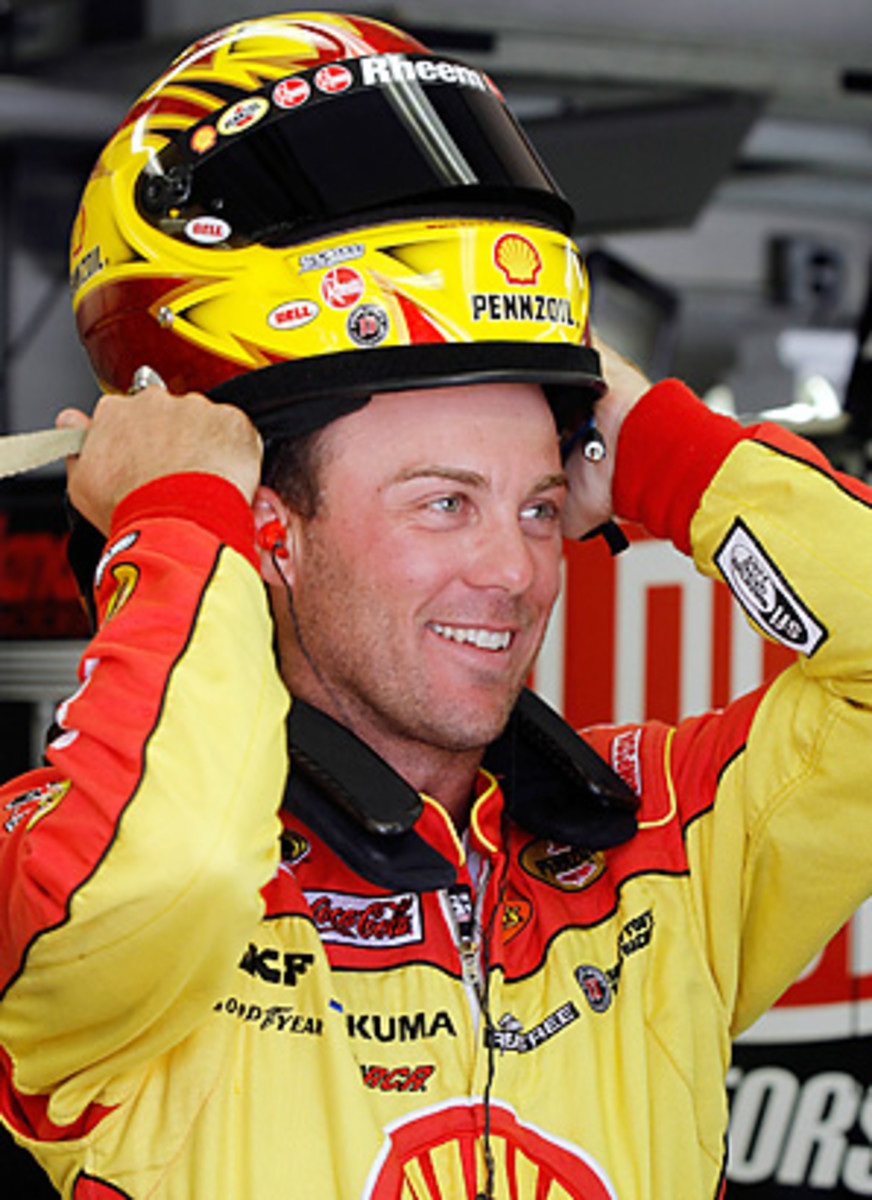
Childress, Harvick turn near split into newly-successful marriage
The revival of Richard Childress Racing into a Chase-quality and Sprint Cup championship-contending team is the best story of the NASCAR season. But the story within the story is the determination of owner Childress to reconcile with Kevin Harvick, to put disagreements in the past and move forward.
Childress faced serious challenges going into 2010. Harvick and his Shell Pennzoil sponsorship were in their final year and neither appeared likely to re-sign, especially after Harvick told Childress last July he wanted out at the end of the season. Childress, though, told the driver he was holding him to his contract, a pledge that left their relationship held together by a piece of paper more than faith and respect.
Childress faced a similar challenge from Shell Pennzoil. Early in the year, probably around Daytona in February, the sponsor quietly told top teams that it was open to receiving proposals for future seasons. Joe Gibbs Racing, according to sources, thought it had a deal with Shell Pennzoil with Kasey Kahne as driver in late March. But the deal suddenly fell apart. Kahne was willing to sign with Gibbs, but it was dependent upon Gibbs landing Shell Pennzoil.
RCR also tried to keep Shell Pennzoil, but it was at least third on the list. Harvick, trying to save his good relationship with the sponsor, approached Penske Racing in March about doing a package deal, said sources.
It was a smart business move by Harvick. Sponsors like Shell Pennzoil are difficult to find in any economic environment and they're almost impossible this year. Harvick was trying to secure a job with a solid team that was well-funded.
In mid-April, Kahne jumped at a contract offered by Rick Hendrick that left his team and sponsor undetermined for 2011, but put him into NASCAR's dominant operation in 2012.
Roger Penske's massive ability to buy lubricants for his automotive dealerships and truck leasing company, and his offering of Kurt Busch, a former Sprint Cup champion, gave him the edge in signing Shell Pennzoil a week later.
I wrote at the time, incorrectly, that RCR losing Shell Pennzoil likely -- but not definitely -- meant Harvick was leaving the team. But it soon became clear that Harvick had limited options to upgrade his situation. RCR had already begun showing it was more competitive, evidenced by Harvick leading the points for five straight races following the Daytona 500.
Childress had never stopped trying to convince Harvick to stay, and they closed a multi-year deal in May without a sponsor package in place. Childress didn't hold any grudges. Having Harvick under contract provided RCR the best opportunity to sign a new sponsor. For Childress, it was a gamble worth taking. There weren't any drivers on the board with Harvick's talent level or resume.
Childress needed Harvick to keep his team in the upper echelon, three cars rather than two. If published reports that Budweiser will be Harvick's sponsor next year are true, Childress' gambit will have paid off magnificently.
Harvick has rewarded Childress with a brilliant season. He's been the points leader for the last 11 races and 16 of 20 overall. Harvick has two wins, nine top-fives and 14 top-10s. His victories are in restrictor plate races, but he's had top-fives on every type of track -- seconds at Indianapolis, the Auto Club Speedway in California and Las Vegas, thirds at Richmond and on the road course at Infineon and fifth at Loudon. As the season progresses with the 21st-race at Pocono this weekend, where Harvick finished fourth in June, he has verified his legitimacy as a bona fide championship contender.
That's a far cry from the winless season he endure last year. Harvick's rebound has lifted his and the team's spirits, but he also knows the critical part of the season is ahead.
"I feel like we have a lot of things we need to cover over the next several weeks to be 100 percent prepared and then you never really know what direction things are going to go once you get into the Chase," Harvick said prior to the Brickyard 400 last weekend. "So, you have to prepare for the things you can control. I think we've done a good job up to this point this year and from last year to this point, it's a 180. This point last year was definitely the turning point and it's a lot easier and more exciting and everybody has a lot better mindset coming to the race track than we did last year.
"In the end, you work just as hard to run last as you do run first. To see the reward that the guys are getting and well get from running better is a lot of fun."
Teammates Jeff Burton and Clint Bowyer didn't make the Chase either last year, which points to an overall problem within the operation rather than an individual team. This year, however, they're all in the top 12 in the points with six races to go.
Childress, the winner of six Cup championships with Dale Earnhardt, orchestrated this comeback with key personnel moves, which has produced better cars and, thus, performances. But Childress' relentless and forgiving pursuit to keep Harvick has proven to be the organization's greatest asset in recapturing their past success.





